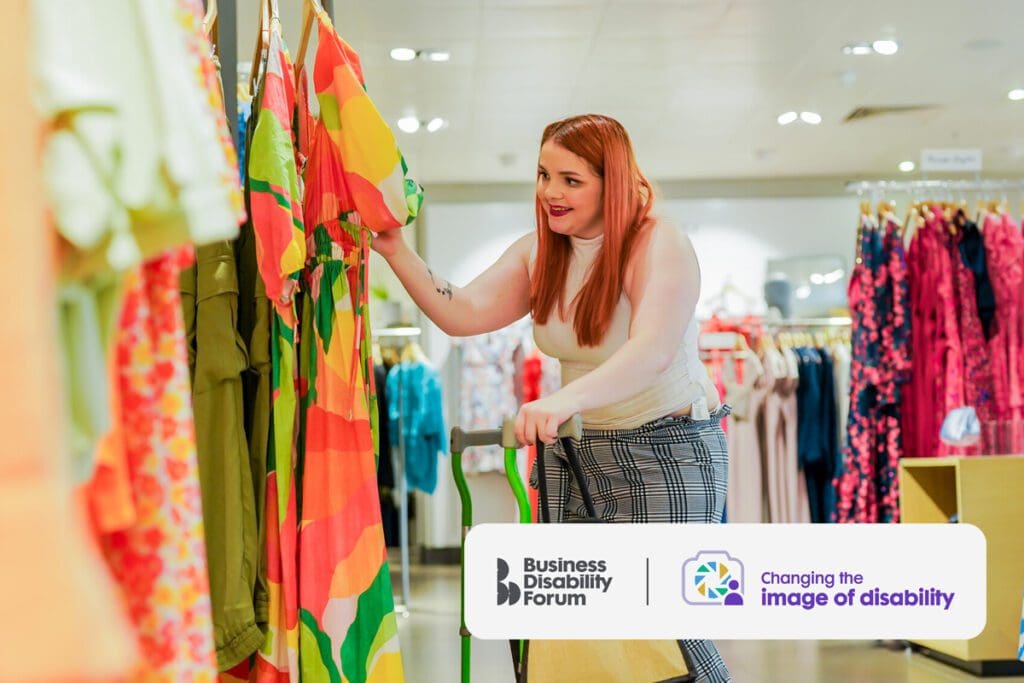Disability-smart language
The words we use to talk about disability are important. Use our short guide to inclusive language to make informed choices.
- Regularly review the language you use
- Ask don't assume
- Using inclusive language: Top tips
- Words to use and words to avoid
- Use: a person with a mental health condition
- Use: disabled person, person with a disability, person with a long-term condition.
- Use: someone who has….
- Use: a person with dwarfism, or someone of short stature. Note that some people prefer 'dwarf'
- Use: seizures
- Use: a person with a learning disability, or someone with a learning disability
- Use: brain injury
- Use: a wheelchair user
- Use: a person with a disfigurement or visible difference
- Use: blind people, people who are blind, deaf people, Deaf people, people who are deaf, disabled people, people with disabilities
A guide to disability inclusive language
The words that we use to talk about disability are important. They can make someone feel engaged and included or ignored and excluded. Business Disability Forum has created this short guide to inclusive language to help you make informed language choices.
In this guide, you will find general advice about how to talk about disability as well as language to use and to avoid. Whilst most of the advice included here is widely accepted, the debate around language and disability is ongoing as language continues to evolve.
Regularly review the language you use
Regularly review the language you use. Involve your disability networks in the process. It is also important to think about inclusive language when reviewing brand guidelines, house style guides and communication policies within your organisation more widely.
Ask don’t assume
The language we use to describe ourselves is a very personal thing. Disability is just one aspect of who a person is. Always ask the person the language they prefer. They may not wish you to mention their disability at all or they may prefer you use or avoid certain words. It is always best to check.
But, don’t let the thought of using the wrong words put you off. Most disabled people won’t mind if you get it wrong if your intention was right. Context is often as important as the words themselves.
Using inclusive language: Top tips
Ask someone the language they would like you to use. If you are unsure, then ask. Don’t make assumptions.
Use language that everyone can identify with. A person may be defined as disabled under the law but may not regard themselves as having a disability or ever use the term ‘disabled’ to describe themselves. As an example, people who use British Sign Language, and who identify as part of the deaf community, may prefer to be referred to as ‘Deaf’ with a capital ‘D’. Someone who has autism or dyslexia may prefer ‘neurodiverse’ or ‘autistic’ or ‘dyslexic’.
Avoid emotive language. This includes terms such as ‘victim’ and ‘sufferer’, unless the person themselves chooses to use them. It also includes terms which disempower disabled people, such as ‘vulnerable’, ‘frail’ and ‘dependent’.
Avoid terms which are patronising. Don’t imply that someone is ‘inspiring’, ‘brave’ or a ‘superhero’ just because they have a disability.
Use neutral language. For example, use terms such as ‘condition’ to describe a person’s disability rather than terms with a negative meaning, such as ‘problem’ or ‘issue’.
Avoid collective nouns. Terms such as ‘the disabled’ or ‘the blind’ suggest that disabled people are part of a uniform group, rather than individuals with their own preferences and identity. Remember that disability covers a broad range of conditions and no two disabled people are the same.
In general, avoid medical terms. Terms such as ‘diagnosis of’ or ‘illness’, may cause offence, although some people choose to use them about themselves. Of course, these terms may be the most appropriate and necessary if you are writing in a medical context but be aware of how they can be viewed by disabled people and people with long term conditions.
Avoid phrases with a negative connotation. Most everyday phrases such as ‘see you later’ or ‘look forward to hearing from you’ are acceptable to someone who is blind or D/deaf. The exception is if the phrase has a negative connotation, such as ‘to turn a blind eye’ or ‘it fell on deaf ears’.
Do not ask people to ‘declare or disclose’ their disability. Some people are ok with this but many others are not because it can imply that disability is something that people should hide or be ashamed of. It is better to ask the person “Would you be happy to talk to me about your disability?” and then let the person lead the discussion. It is up the person how much or how little they tell you about themselves. Never force someone to share information with you about their condition if they do not want to. Always check how much a person is happy for you to share publicly before publishing a story.
Consider your audience. Generally, if writing for a UK audience, then ‘disabled people’ is often preferred over ‘people with disabilities’. ‘Disabled people’ recognises that people are ‘disabled’ by society’s response to them or by their long-term condition. This is called identify first language. If communicating with a global audience, then ‘people with disabilities’ is more widely used. This is called people first language and emphasises the person over their disability.
Take into account cultural meaning. The words and phrases given here relate to the use of English in the UK. Different words will be viewed as acceptable and unacceptable in other languages and cultures. It is important to take this into consideration when translating any information into another language.
Words to use and words to avoid
Please note that some of the words used in the following ‘Avoid’ sections may cause offence. We have included them to help increase understanding. We do not condone their wider use.
Use: a person with a mental health condition
Avoid: mental, schizo, psycho, mad
Use: disabled person, person with a disability, person with a long-term condition.
Avoid: cripple, invalid, or describing disabled people generally as ‘unwell’
Use: someone who has….
Avoid: victim of or sufferer
Use: a person with dwarfism, or someone of short stature. Note that some people prefer ‘dwarf’
Avoid: midget
Use: seizures
Avoid: fits or spells
Use: a person with a learning disability, or someone with a learning disability
Avoid: mentally handicapped, retarded, slow
Use: brain injury
Avoid: brain damaged
Use: a wheelchair user
Avoid: wheelchair bound, confined to a wheelchair
Use: a person with a disfigurement or visible difference
Avoid: deformed
Disfigurement is a legal term in the UK’s Equality Act, referring to people whose visible difference amounts to a disability and confers protection from disability discrimination. We recommend using the term ‘visible difference’ unless referring specifically to the legal protections related to disfigurement under the Equality Act. See our factsheet on visible differences for more information.
Use: blind people, people who are blind, deaf people, Deaf people, people who are deaf, disabled people, people with disabilities
Avoid: the blind, the deaf or the disabled.
The information in this guide has been adapted from Business Disability Forum’s Inclusive Communication Toolkit.
If you require this content in a different format, contact enquiries@businessdisabilityforum.org.uk.

